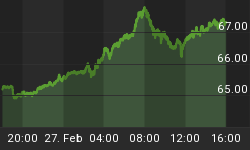Since the announcement last week that I will chair the congressional subcommittee that oversees the Federal Reserve, the media response has been overwhelming. The groundswell of opposition to Fed actions among ordinary citizens is reflected not only in the rhetoric coming out of Capitol Hill, but also in the tremendous interest shown by the financial press. The demand for transparency is growing, whether the political and financial establishment likes it or not. The Fed is losing its vaunted status as an institution that somehow is above politics and public scrutiny. Fed transparency will be the cornerstone of my efforts as subcommittee chairman.
Thanks to public pressure earlier this year, Congress did pass legislation that requires the Fed to disclose some information about its bailout of select industries and companies following the 2008 financial crisis. So two weeks ago the Fed released data concerning more than $3 trillion of assistance it offered to banks through its bailout facilities. After reviewing this data, however, we are left with many more questions about the Fed's "lending".
In the "Term Securities Lending Facility", the Fed was supposed to have loaned against AAA-rated securities -- yet over half of the collateral put up by banks to obtain loans had no listed credit rating. Should we assume that the Fed accepted absolute junk rated securities as collateral for loans? Presumably these securities were so bad that they wouldn't even publicize their credit rating. So why should our central bank, backed up by your taxes, accept such collateral?
On another note, of the $1.25 trillion purchased under the Fed's "Mortgage-Backed Securities Purchase Program," only $877 billion in purchases have been publicized. What happened to the remaining $400 billion?
These kinds of limited disclosures by the Fed only underscore the need for a full and complete audit of the Fed's financial books. This audit should be done by an independent third party, in the same manner that public companies are audited. The Fed should make public its balance sheet, income statement, and perhaps most importantly its cash flow statement. It also should publicize the notes explaining those financial statements.
We seem to forget sometimes that Congress created the Fed -- it is a government-created banking monopoly, and its top decision-makers are appointed by the President and confirmed by the Senate. If the Fed does not perform satisfactorily in the eyes of these politicians and their constituents, the Chairman and Governors may not be re-nominated.
In theory, Congress could even repeal the Federal Reserve Act altogether since it has the authority to do so. Obviously Congress is within its authority to audit an organization it created by statute, and it is time to assume that responsibility.
With 320 Members of Congress cosponsoring my legislation to fully audit the Fed in the 111th Congress, my hope is that we can build on our broad bipartisan coalition in 2011 and continue the push for greater Fed transparency going forward.















